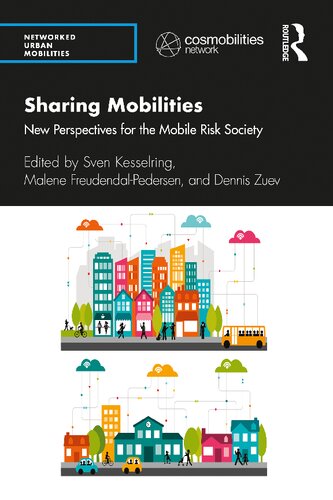

Most ebook files are in PDF format, so you can easily read them using various software such as Foxit Reader or directly on the Google Chrome browser.
Some ebook files are released by publishers in other formats such as .awz, .mobi, .epub, .fb2, etc. You may need to install specific software to read these formats on mobile/PC, such as Calibre.
Please read the tutorial at this link: https://ebookbell.com/faq
We offer FREE conversion to the popular formats you request; however, this may take some time. Therefore, right after payment, please email us, and we will try to provide the service as quickly as possible.
For some exceptional file formats or broken links (if any), please refrain from opening any disputes. Instead, email us first, and we will try to assist within a maximum of 6 hours.
EbookBell Team

4.7
26 reviewsSharing Mobilities focuses on the emergence of future sustainable and collaborative mobility cultures. At the intersection of physical and virtual capacity and access to people, goods, ideas, and services, this book poses fundamental challenges and opportunities for governance, economy, planning, and identity.
The future of new collaborative forms of consumption and sharing would play a key role in the organization of everyday life and business. Sharing mobilities is more than simply sharing transport, and its diverse impacts on society and the environment demand thorough theory-led sociological research. With an extensive global range, the contributors present radical manifestations of sharing capacities throughout diverse countries, including Germany, Denmark, Japan, and Vietnam. The phenomenon of mobility is highly actual and social as well as politically relevant and urging.
This collection focuses on open questions from the perspective of the mobilities turn while presenting state-of-the-art theory-based articles with applied perspectives. An ideal read for scholars based in social science and the interdisciplinary research on mobility, transports, and sharing economy. Sociologists, geographers, economists, urban governance researchers, and research students would also find this book of interest.